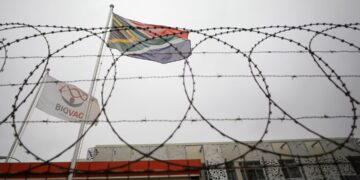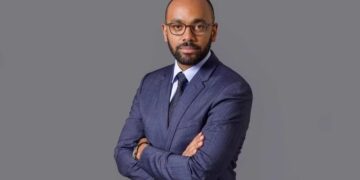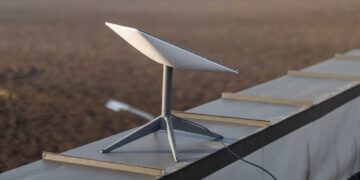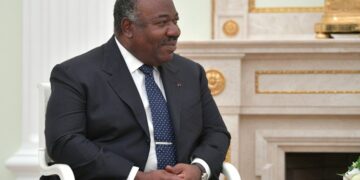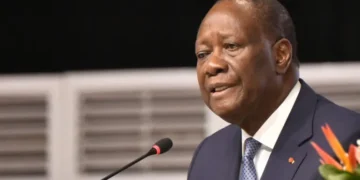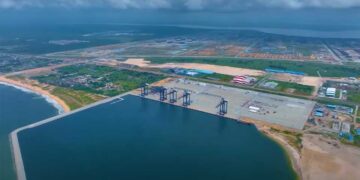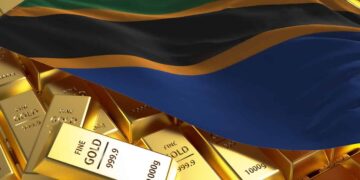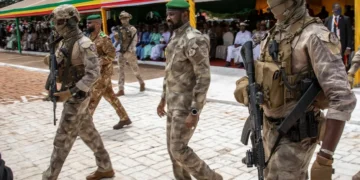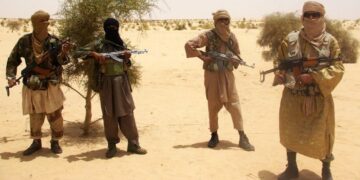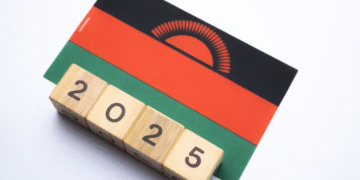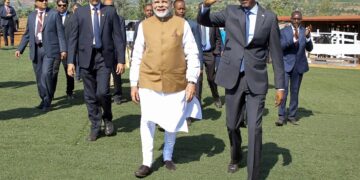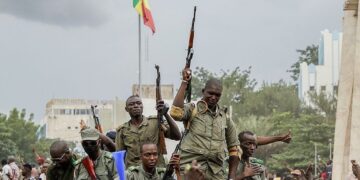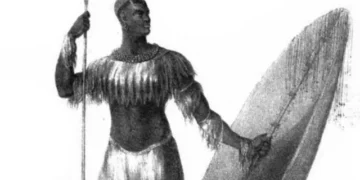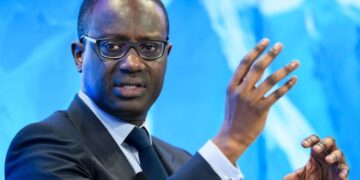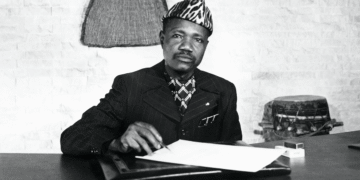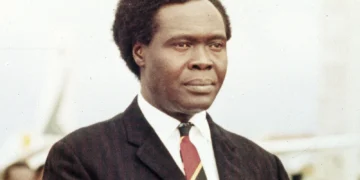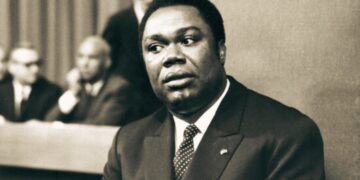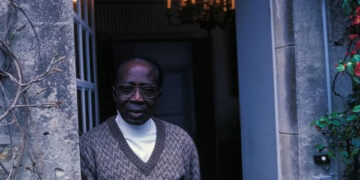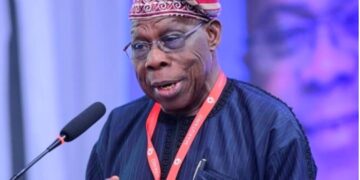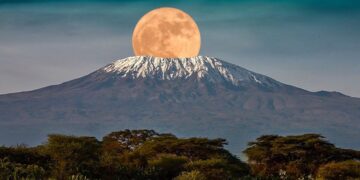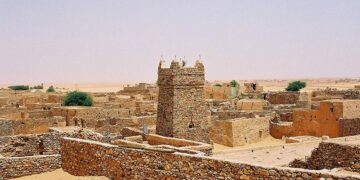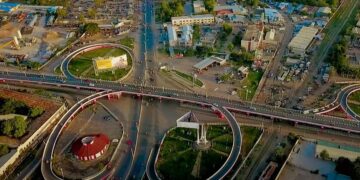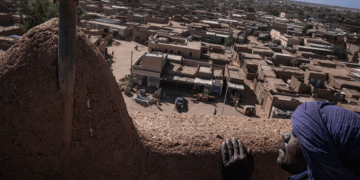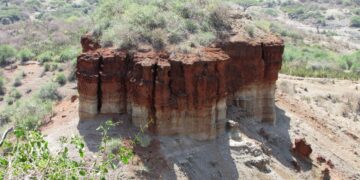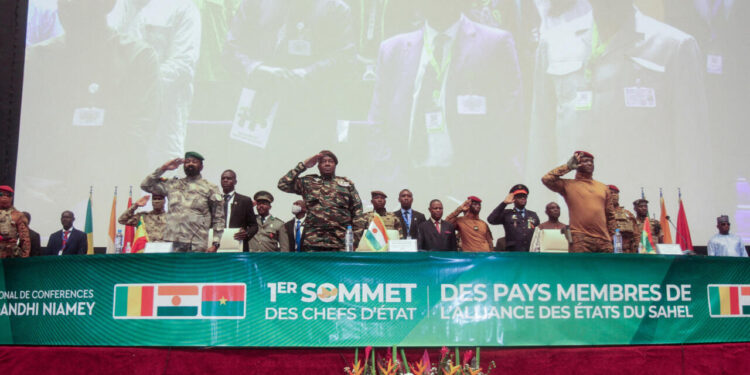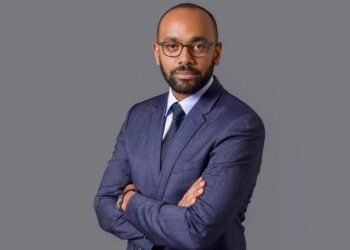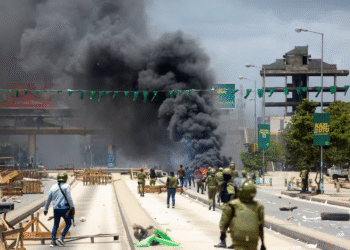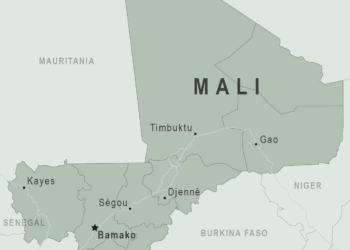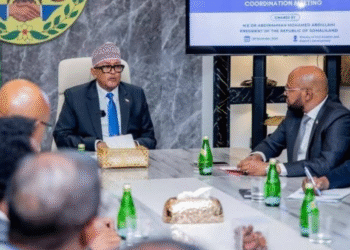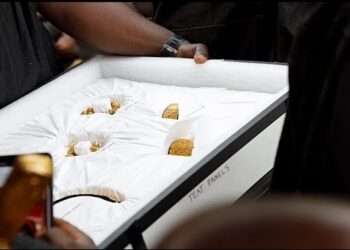In Africa, democratization is being reified as the continent’s ‘‘savior,’’ especially since the region has been strangulated by the authoritarian albatross since the post-independence era. This idea is captured in a book, Africa and the Third Millenium, edited by George Klay Kieh. On page 136, he contends that the United States, the western powers, Japan, and the Bretton Woods Institutions—the International Monetary Fund and the World Bank—have rhetorically made democratization the terra firma of their policies towards Africa. For example, the progress towards democratization is a premier prerequisite for heavily indebted African states to qualify for debt relief. As time went by, the leadership in many countries of Africa was changed through coups and more coups, which brought in military rulers into political leadership, many of whom ultimately transformed into civilian rulers (see Politics and Government in Africa by Emmanuel Ikechi Onah, p. 126).
In thinking about coups in Africa, the motives that inspire the military to do what they do may be broken down into various factors, as noted in Ian Taylor’s book titled African Politics: A Very Short Introduction. Taylor detailed on pages 84 and 106 that some seem to have been provoked by widespread societal dissatisfaction with the nature and policies of the political class in power. These coups often enjoy broad popular support (at least initially) and are justified as being necessary to ‘drain the swamp’ of incompetent and corrupt politicians.
Recently, the President of the Ford Foundation, Darren Walker, said the majority of young people in Africa endorse military interventions if democratically elected leaders fail to deliver on their promises. Mr. Walker, who credited his submission to the latest research findings from Afrobarometer, stated this in his address at the State of Democracy in Africa Summit held on May 22 in Abuja.
Some West African countries, like Burkina Faso, Niger, and Mali, have witnessed military coups in the past few years, with the military leaders appearing to enjoy support from their country’s population. Mr. Walker, who described inequality as the enemy of democracy, said participatory democracy will not only empower citizens to create a society that is more inclusive and just but also hold the power to create prosperity for more people, drive investor confidence, and increase economic stability.
However, the United Nations Development Programme (UNDP) has identified over-ambition among young military officers and the erosion of core societal values as major catalysts for the spate of coups d’état witnessed across Africa. This assessment was delivered by Matthew Alao, UNDP Team Lead for Governance, Peace, and Security, at the Martin Luther Agwai International Leadership and Peacekeeping Centre in Jaji, Kaduna State. Also, he said the military could not be divorced from the societal fabric in which it operates, adding that there was a need to address the root causes of coups, such as over-ambition among young officers, eroding core values, religious beliefs, and a lack of education.
The Confederation of Sahel States and ECOWAS: Turning around
The Economic Community of West African States (ECOWAS) is a regional group of fifteen countries, founded in 1975. The ECOWAS region spans an area of 5.2 million square kilometers. The member states are Benin, Burkina Faso, Cabo Verde, Côte d’Ivoire, The Gambia, Ghana, Guinea, Guinea-Bissau, Liberia, Mali, Niger, Nigeria, Sierra Leone, Sénégal, and Togo. ECOWAS, established as an organization to help the process of integrating the West African economies, has now amended its treaty to take into cognizance the collective security role it is now playing (see p. 191, The African Union and the Challenges of Cooperation and Integration: Proceedings of the National Seminar, organized by The Ministry of Cooperation and Integration in Africa, The Presidency, Abuja, 14–15 May, 2001). Additionally, ECOWAS has helped restore security and democracy in West Africa and has contributed to resolving civil wars in Liberia, Sierra Leone, Guinea-Bissau (in the 1990s), Côte d’Ivoire (2002–10), Mali (2013), and The Gambia (2016) through diplomatic efforts and military interventions.
Mali, Burkina Faso, and Niger have announced their withdrawal from ECOWAS on Sunday, January 27, 2024, citing the sub-regional organization’s departure from the integration ideals of its founding fathers. However, Mali, Burkina Faso, and Niger have come together to form the Alliance of Sahel States. The three military rulers have pledged to support each other against outside threats and internal security challenges. The military regimes of Niger, Mali, and Burkina Faso marked their divorce from the rest of West Africa on Saturday, July 6, as they signed a treaty setting up a confederation between them. The “Confederation of Sahel States,” which will use the acronym AES and was beheaded by Mali in its first year, will group some 72 million people. Their ECOWAS exits were fueled in part by accusations that Paris was manipulating the bloc and not providing enough support for anti-jihadist efforts. Agreements on security non-aggression pacts, as well as economic, monetary, and social domains, were signed by Presidents Assimi Goita of Mali, Ibrahim Traore of Burkina Faso, and Abdourahamane Tiani of Niger. Analysts say the AES’s formation is a significant development in West Africa’s political and security landscape. It poses challenges to ECOWAS and has the potential to reshape the region’s geopolitics. However, ECOWAS is an essential institution that must be safeguarded. The free movement of people and goods is a major achievement that distinguishes West Africa from other regions on the continent.
Although ECOWAS has never recognized the AES/ASS as an entity, neither has any country or organization. The regional bloc also maintains that the withdrawal of any member state follows a one-year procedure according to the organization’s protocol. ECOWAS says the latest move by the juntas could disrupt the freedom of movement of people across the region and undermine efforts to combat regional insecurity, especially in intelligence sharing. ECOWAS has made diplomatic efforts to dissuade the three states from quitting the 50-year-old alliance. The split will reverse decades of regional integration and threaten a messy disentanglement from trade and services flows of nearly $150 billion a year.
Objectives and Structure of the Alliance of Sahel States (AES)
On September 16, 2023, Mali, Niger, and Burkina Fasso signed the Liptako-Gourma1 charter, giving birth to the Alliance des Etats du Sahel, a structure intended to function as a strategic alliance for cooperation between its members. . In reality, though, the partnership “is in part an effort to entrench and legitimize (their) military governments” more than to tackle the violent extremism that they have limited capacity to fight, said Nate Allen, an associate professor at the Africa Center for Strategic Studies. . The Alliance of Sahel States (AES), formalized through the Liptako-Gourma Charter, represents a significant shift in the security dynamics of the Sahel region. .
In their statement leaving ECOWAS, the three member states highlighted three major criticisms of the bloc. First, they cited that it had “drifted from the ideals of its founding fathers and the spirit of Pan-Africanism,” perhaps a veiled critique of the bloc’s approach to seeking resolutions. Second, they shared a belief that the bloc was now “under the influence of foreign powers, betraying its founding principles, and has become a threat to member states and peoples,” which likely aimed at tying the body to former colonial master France, which has become deeply unpopular in their states. Third, the group accused the body of not supporting their fight against “terrorism and insecurity” and imposing “illegal, illegitimate, inhumane, and irresponsible sanctions,” which have led to increased hardship and uncertainty in those states.
All three of the Alliance’s member nations have had coups since 2020. It started in Mali three years ago when Colonel Assimi Goita’s soldiers staged a mutiny and attempted a coup. In May 2021, Colonel Goita carried out a second coup against an interim government. In 2022, Burkina Faso experienced two military coups, joining this trend of falling regimes. Then, on July 26, 2023, Mohamed Bazoum, the democratically elected President of Niger, was overthrown again by the presidential guard. The underlying cause of all these coups is the anger against the government vis-à-vis their inability to put an end to the rebel insurrection. Many army personnel are dying from insurgent attacks as they are neither adequately equipped nor trained to withstand such attacks. Poverty, inequality, and corruption are at an all-time high.
Global Order and West African Regional Politics
The three landlocked countries are among the poorest nations in the world. Despite the announcements, without finance and technical capacity, it won’t be easy for them to build new institutions, the analyst said. Although the Alliance fits within the framework of sub-regional integration, the block’s eventual success will be determined by how well these nations can formulate an economic agenda that benefits their citizens. In essence, the emergence of the AES is not just a regional development; it has the potential to reshape the geopolitical landscape of West Africa and Central Africa. The AES, with its mutual defense pact and shared objectives, is poised to become a formidable entity in the Sahel. Mali, Niger, and Burkina Faso are abundant in raw materials such as gold, uranium, and manganese. China, with its vast economic interests in Africa, could seek to dominate these mineral markets, while Russia might aim to expand its political and military influence, similar to its engagements in other parts of Africa. The Alliance of States of Sahel has the great potential to be a defining factor in the foreign policy calculations of Russia and China vis-à-vis Africa in the foreseeable future for various reasons.
Their decision to withdraw from ECOWAS appears to be a strategy to evade the regional bloc’s requirement for short transitions and that transition leaders not run in elections. Presidential elections scheduled for 2024 in Mali and Burkina Faso have been postponed indefinitely. Transition periods have been extended, and in Burkina Faso, an explicit provision allows the transition leader to run in the upcoming elections. In Niger, no transition timeline has been set since Mohamed Bazoum’s ousting in July 2023. Meanwhile, Colonel Assimi Goïta of Mali, Captain Ibrahim Traoré of Burkina Faso, and Niger’s General Abdourahamane Tiani met in Niamey, a day ahead of the summit of the Economic Community of West African States (ECOWAS), held on July 7 in Abuja. The three Sahel leaders, who came to power through military coups between 2020 and 2023, said they wanted to take the Alliance, set up in September 2023, a step further by establishing it as a confederation. The Confederation of the Sahel States, which will use the acronym AES, is headed by Mali in its first year. AES comprises 72 million people. Colonel Assimi Goïta, Mali’s military leader, reported that economic cooperation among the three Sahel states is progressing, with specific projects already outlined. The CES expands the operational scope of the AES from a mutual defense agreement to a body that coordinates a variety of policies. The juntas initially formed the AES in September 2023 as a mutual self-defense pact to deter a threatened ECOWAS military intervention to forcibly depose the nascent Nigerien junta. The CES is a multi-sectoral alliance that coordinates diplomatic, economic, and military policy among the three member states.
Russia is quick to lend its support to countries under coup leadership, solidifying its role as a partner with these countries. At the same time, actors such as Wagner often exploit regional instability in blundering ways, usually worsening the security situation for civilians and, in turn, harming Russia’s international reputation. All in all, that is bad news for people in the Sahel. While a number of factors are in favor of the project developed by the three alliance states, indicating its success, there are also a number of blocking and hindering factors, both structural and cyclical, that may put the brakes on the momentum achieved to date. Turkey has been a leading security partner for the AES. All three countries rely on Turkish drones and have close personal contacts in the Turkish defense industry. Turkish-funded Syrian mercenaries also began operating in at least Niger and potentially Burkina Faso in 2024 to protect crucial economic sites where the Turkish government has a shared stake, such as mines. Iran has shown interest in becoming an economic and defense partner with the AES since 2023. Iranian officials met with their AES counterparts’ multiple times throughout 2023. The Iranian regime and affiliated media outlets have repeatedly emphasized economic issues as an area of focus in Iran-AES relations.
Thwarting further Falling-out
African leaders need to do more to prove that they are working for the masses. Experts have noted that the future of the Sahel is difficult to predict. The ability of the authorities to respond appropriately to the various challenges, particularly with regard to governance, is vital. Observers such as Walker, therefore, urged the people of West Africa to reaffirm their commitment to the principles of peaceful and participatory democracy, which focus on the voices of the people and respect for their rights and freedoms.
Addressing the persistent coups and counter-coups staged by military officers in Africa, Alao emphasized the fundamental problem of eroding core values, saying “our core values are fast breaking down. You will see agitation and expectation on so many issues that may not be reality.” While broader ECOWAS reform should strengthen the bloc’s political, institutional, and financial capacity to prevent coups and respond to citizens’ democratic and economic aspirations, lessons from current crises, especially in Niger, should prompt a rethink of ECOWAS’ responses to unconstitutional changes in government. The French government has seemed to run out of solutions to the region’s challenges. But critics are wondering why France thinks it needs to get things under control in Africa; even before the coup, those critics wondered why a military answer to the problems in the Sahel (an answer that has already failed) is still and exclusively on the table. And in finding new answers to this problem, it isn’t just about adjusting aid to the region; France needs to change its paradigm.


